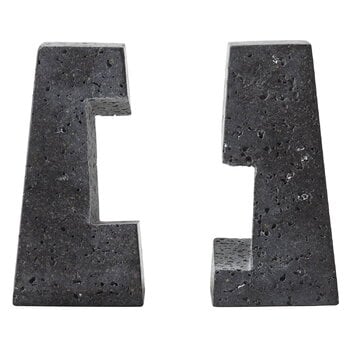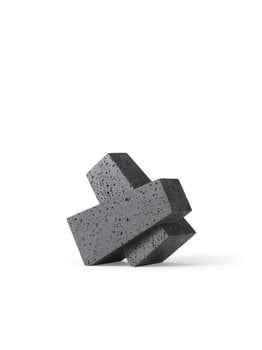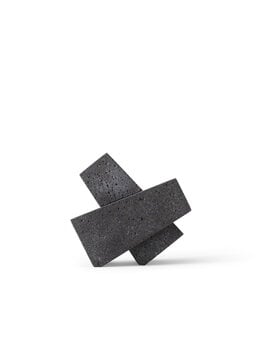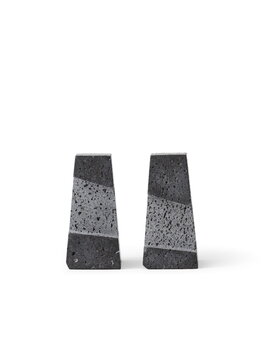Audo Copenhagen's Converge bookend is made of lava stone with a dark, irregular surface that adds a unique texture to the beautiful ornament. The bookend consists of two abstract parts that can be used in the original purpose to support the books on the shelf in straight rows, or they can be joined together to create an original sculpture that will delight on a coffee table, shelf or windowsill.
The Converge bookend is a part of Audo Copenhagen's Colin King collection, with dramatic and decorative objects that celebrate the beauty of natural materials and shapes, bringing a touch of elegance to any space.


























